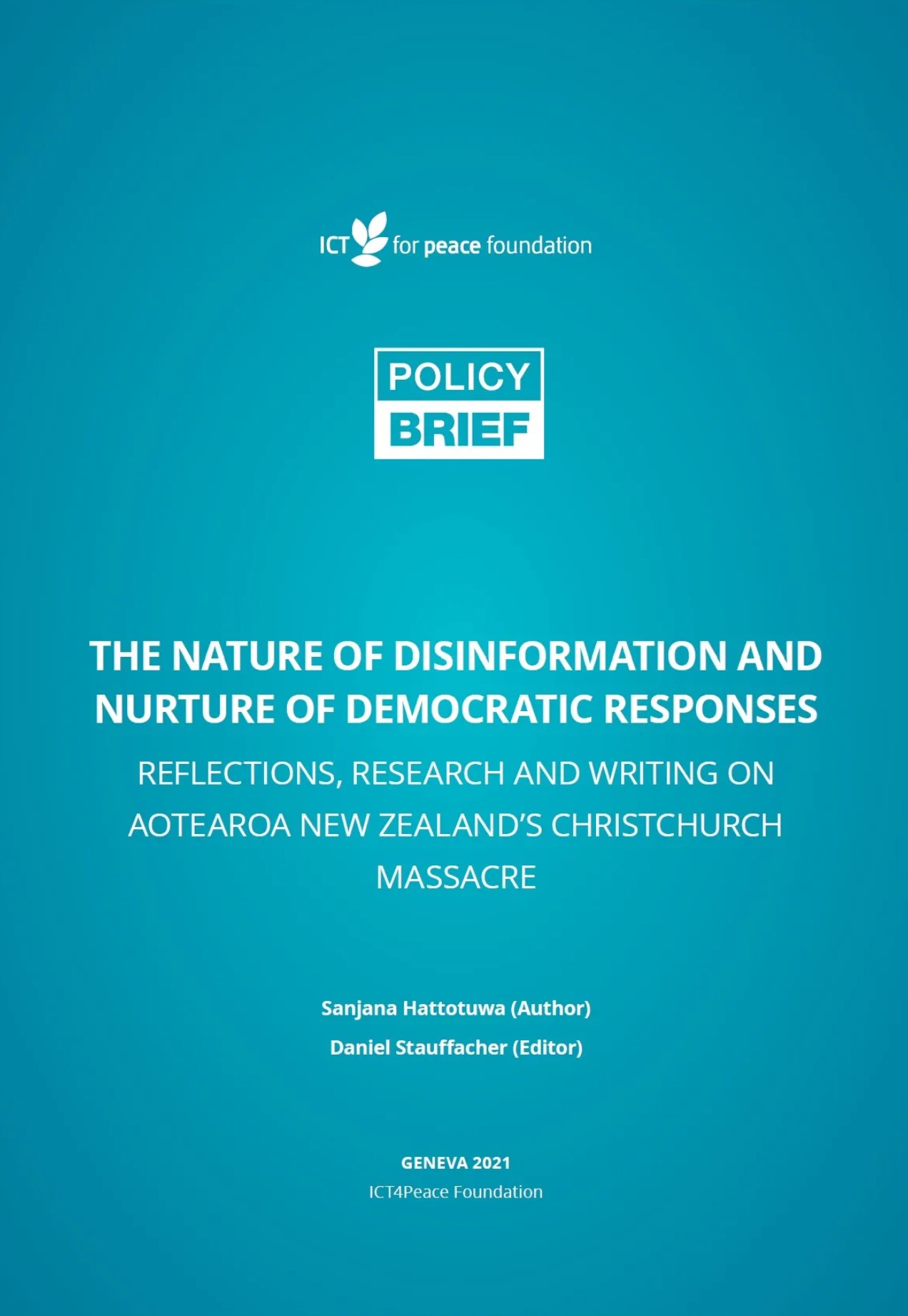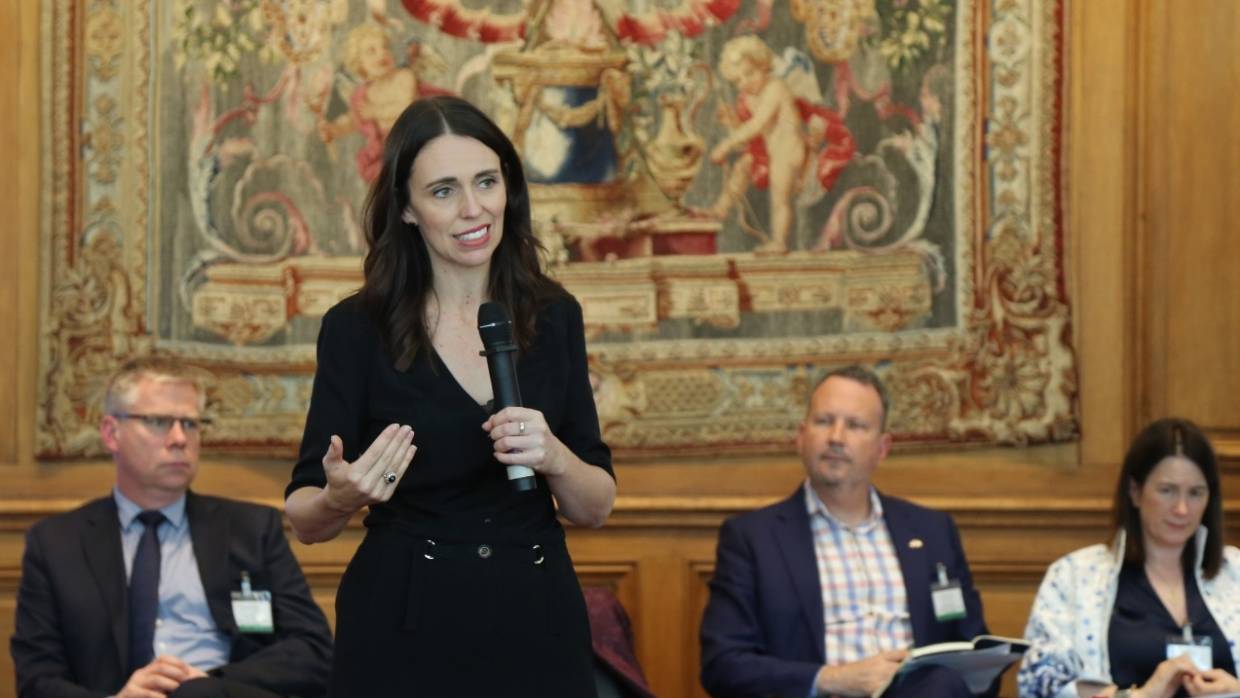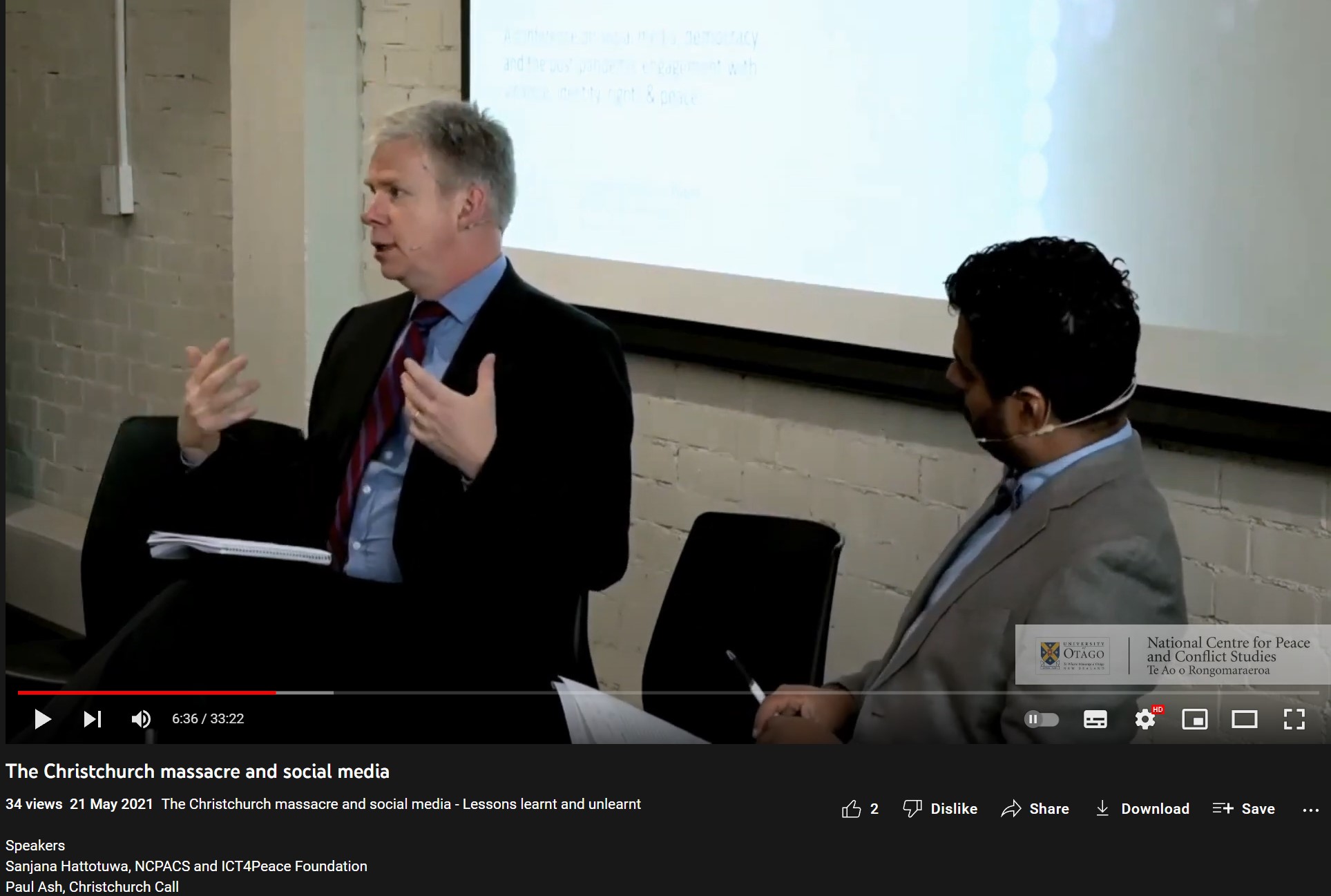In light of extremely distressing and disturbing mass-casualty violence in the United States recently, the ICT4Peace Foundation’s commemoration of the third anniversary of the Christchurch Call recognises the initiative’s strides, over the past three-years, to stymie the seed and spread of violent extremism online, and over social media. Much more remains to be done, especially around how today, ecologies providing safe harbour to violent extremism are very different to those the Call was established to address, along constituent partners and platforms. The issue of terrorism and violent extremist content aside, the ICT4Peace Foundation also observes how online fora, and new social media choreographies, now fuel discord through disinformation, creating challenging problems for democratic values, frameworks and institutions. The resulting information disorders require the Christchurch Call to re-asses its raison d’être, and embrace how contemporary challenges, beyond offline terrorism’s germination and propagation on social media, require new responses.
In September 2021, ICT4Peace Special Advisor Dr. Sanjana Hattotuwa’s writing on the Christchurch massacre in March 2019, and related op-eds, presentations, lectures and other output was released as a compilation. Covering a period of three-years, Dr. Hattotuwa’s contributions in New Zealand’s domestic media, international media and other public fora including lectures in Europe critically examine a spectrum of issues brought to light by the 2019’s violence and terrorism. Reducing harm online, how offline context influences online content, the role of disinformation, the reach of misinformation, addressing content inciting violence, the opportunities and challenges posed by AI in the reduction of online harms, domestic media regulation, and human rights considerations in platform governance are some of the issues covered in this collection, featuring op-eds, essays, policy briefs, presentations, lectures and podcasts.
The ICT4Peace Foundation was also honoured to be invited by New Zealand’s Prime Minister Jacinda Ardern and the French President Emmanuel Macron to contribute to and participate in the Christchurch Call to Action Summit, which took place on 15 May 2019 in Paris, France, two months after the two attacks. In September the same year, we were one of the first civil society organisations invited by the New Zealand Government to join The Christchurch Call Advisory Network. In its contribution to the Christchurch Call to Action Summit, ICT4Peace was able to build on its close and fruitful cooperation with UN Counter Terrorism Executive Directorate (CTED) from 2015 to 2019.
In preparation of the Christchurch Call Meeting hosted by the Prime Minister RT Hon Jacinda Ardern in Paris on 14 May 2019, ICT4Peace prepared a Policy Paper as input to the conference. The last point resonates more strongly in 2022 and after the recent mass-casualty terrorism in the United States, noting that “It is important in these difficult times also to remember that just as social media helps extremist ideology take seed and grow, it also helps in healing, empathy, gestures of solidarity, expressions of unity, the design of conciliatory measures and the articulation of grief and sympathy.”
In March 2021, Dr. Hattotuwa organised a conference on social media and democracy at the University of Otago. Speaking at the event, Paul Ash, the New Zealand Prime Minister’s Special Representative on Cyber and Digital, Christchurch Call & Cyber Coordinator outlined the importance, and work of, the Call.
Writing at the time Dr. Hattotuwa’s compilation was released, the Foundation’s Chair, Dr. Daniel Stauffacher noted, “The Christchurch massacre, resulting in the Christchurch Call as a global platform, I have no doubt will help the world move towards rights-respecting processes to challenge the growth of online harms that increasingly impact all of us, and indeed, now lie at the heart of democracy.”
Tragic events during just the first five months of 2022 remind us of the enduring value of and need for the Christchurch Call. There is no end-point to this work, and in the process of perfecting approaches to reduce harms online, the ICT4Peace Foundation encourages partners in the Call, including leaders of New Zealand, France and other countries, to more fully embrace disinformation’s deleterious effects on democracy, that through the erosion of social cohesion, serves to foment violence. The ICT4Peace Foundation looks forward to working with, and supporting the Christchurch Call in this and other endeavours to strengthen democratic values, and peace.



